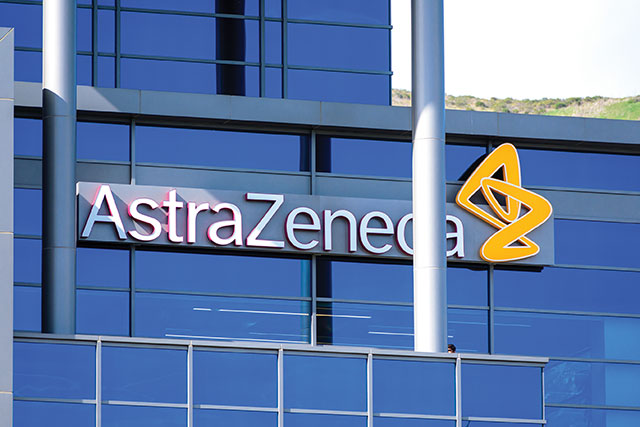AstraZeneca/Merck’s Lynparza combination recommended by NICE for advanced ovarian cancer
08 Dec 2023
Clinical ResultDrug Approval

Preview
Source: PMLiVE
AstraZeneca (AZ) and Merck’s – known as MSD outside the US and Canada – Lynparza (olaparib) has been recommended by the National Institute for Health and Care Excellence (NICE) as part of a combination treatment for a subset of ovarian cancer patients.
The drug has been specifically recommended for NHS use alongside Genentech’s Avastin (bevacizumab) as a maintenance treatment in adults with advanced epithelial ovarian, fallopian tube or primary peritoneal cancer, whose disease is associated with homologous recombination deficiency (HRD)-positive status.
Eligible patients will also need to be in complete or partial response to first-line platinum-based chemotherapy.
Ovarian cancer is the sixth most common cancer in the UK, with 7,400 new cases of the disease diagnosed every year.
Around half of patients with advanced high-grade ovarian cancer have HRD, when the body is unable to repair breaks in the DNA.
Given as a tablet, Lynparza works by inhibiting the PARP enzyme, which helps cells repair damaged DNA. By blocking this enzyme, PARP inhibitorsPARP inhibitors prevent the DNA of cancer cells from being repaired, preventing them from growing and spreading.
NICE’s final draft guidance on the treatment was supported by positive results from the late-stage PAOLA-1 trial, in which the combination reduced the risk of death by 67% in patients with HRD-positive advanced ovarian cancer.
Tom Keith-Roach, president, AZ UK, said: “We are delighted with this recommendation for women with advanced HRD-positive ovarian cancer.
“[Lynparza] was discovered and developed in England, and it is important that UK patients can routinely and rapidly access such medicines.”
Lynparza has been available on the NHS in England and Wales for patients with advanced ovarian cancer, and inherited BRCA1 or BRCA2 mutations who have stopped responding to treatment since January 2020.
The drug was also recommended by NICE in April this year for adults with HER2-negative, high-risk early breast cancer who have inherited faults in their BRCA1 or BRCA2 genes after surgery and chemotherapy, as well as for adults with previously treated hormone-relapsed metastatic prostate cancer who have the same BRCA mutations.
Keith-Roach said at the time: “This is a hard-won and extremely important milestone agreement with NHS England, which follows on from the successful NICE health technology assessment process.
For more details,please visit the original website
The content of the article does not represent any opinions of Synapse and its affiliated companies. If there is any copyright infringement or error, please contact us, and we will deal with it within 24 hours.
Organizations
Indications
Hot reports
Get started for free today!
Accelerate Strategic R&D decision making with Synapse, PatSnap’s AI-powered Connected Innovation Intelligence Platform Built for Life Sciences Professionals.
Start your data trial now!
Synapse data is also accessible to external entities via APIs or data packages. Leverages most recent intelligence information, enabling fullest potential.




